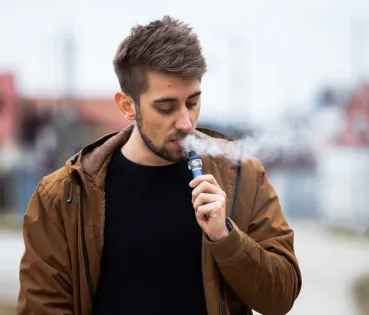
Pandemic masks
Dr. José Abad, psychiatrist, general coordinator of Lavinia and ASISA delegate in Valladolid, shares his view with readers of Compartir, of how the coronavirus pandemic has changed human relations.
If when leaving the house, a few months ago, we had seen everyone wearing masks, we would have been very surprised. Amazed and astonished by this incredible unreality, we would try to make sense of it: a bad dystopian dream? Perhaps a theatrical festival? No, this cannot be the case; it is all in my imagination! I am seeing visions! However, today we contemplate this compulsory, necessary masking as completely normal and in line with the situation. This fact makes us aware of human beings’ surprising capacity for adaptation when faced with the reality they have to live through. We are highly adaptive and accommodating animals. But above all, we are social beings, we are people.
Suddenly, a new Pandemic appears (Coronavirus), which as with any great catastrophe makes many atavistic, ancestral fears appear, along with other new ones. When faced with the unknown, the mind and the accompanying anxiety, lead us to seek out similar situations and to find solutions that are already available. We are faced with a paradox: the enemy is undoubtedly social and its cause is strengthening the culture of self interest (“flee quickly, return later”) and therefore, individualism. We have become more vulnerable: added to the fear of the Pandemic itself are the warnings and fears that are transferred to us by those should be qualified to calm us down and govern us efficiently and who, instead insist on fighting amongst themselves.
The mask has irrevocably become the indelible, absolute symbol of the Pandemic. In this time of fear, we have to wear the essential mask, which covers our faces, preventing us from immediately recognising others, when “the face is the mirror of the soul.”
But, this fact of not recognising a masked person frightens us. We are missing the gestures. The gestures, good gestures, are the first elements that confirm whether the other person has good or bad intentions. We are left only with their posturing; we can only see their eyes. And so we look at each other without knowing whether we should smile or look disgusted. What should we do? Let them read our eyes! The language of the eyes has become essential. It has become a top priority. That is to say, we look and in turn are looked at, probably with the same insecurity and suspicion.
But however much we fear it and want to stop wearing it, human beings can only rely on human beings: they love and hate; they naively believe and distrust; they fear and will give their lives. We are completely dependent, precarious and fragile. We need their care and we are made to care for each other and ignore each other. But in the absence of contact with their peers, people lose interest in life and many of their irreplaceable wishes and interests disappear; they lose their reason for living.
Prior to the Pandemic, we were living through the relentless boom of so-called Digitalisation (Internet…), which since the start of the Pandemic has become an essential, iconic instrument to tackle the overall dimension of the catastrophe. It is difficult to find an area, organisation or institution where it can be expendable. “Either you become digitalised or you disappear.” We cannot deny its inestimable importance and value, and in a Society where loneliness and isolation are exponentially growing, technology is useful, but as a vicarious procedure.
Masks, Coronavirus, Digitalisation. But what is all this? Admittedly, we are adaptable, but to what extent?
Any human relation is a mixture of moments of joining and the convergence of emotional states and moments of disunity and divergence, and moments where we are seeking to repair this difference or divergence. Throughout life, we unintentionally learn our ideal physical and mental distances, along with what we can expect from our emotional surroundings and how to use others to regulate our emotions. There is a new paradox: the person who protects us can infect us. Nothing can be trusted.
For better or worse, Coronavirus crudely classifies us into two categories: either we are sick or we are afraid, petrified about becoming sick. This fierce uncertainty made us demand “truths” and a fast conclusion to this calamity. We are both looking for, and craving, Hope. We check data and statistics. An astounding Credulity appears to us. This occurs in a period when previously, we were living almost detached from sickness and death. We wanted to be immortal. And however, Fear also has spurred individuals and society to seek out medical, non-medical and organisational solutions. We only have to look at the unprecedented individual efforts made in the search for a vaccine and the enormous logistical capacity for its distribution and that imaginatively, Society, the Individual, once again has “averted the danger.”
There is no doubt that it was this fear of infection, of epidemics, which made the discovery of the vaccines and the development of Public Healthcare and Preventive Medicine possible. Fear paralyses, blocks, separates, confuses, but it also sharpens ingenuity, seeking solutions; it makes us socialise and it can force us to be more receptive and human.




